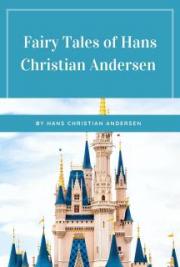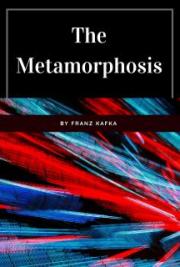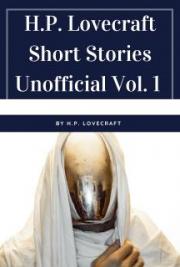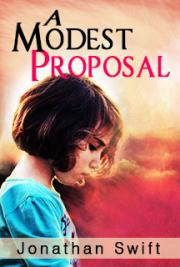IX. The Rime Of True Thomas
THE TALE OF THE RESPECTABLE WHAUP AND THE GREAT GODLY MAN
This is a story that I heard from the King of the Numidians, who with his tattered retinue encamps behind the peat-ricks. If you ask me where and when it happened I fear that I am scarce ready with an answer. But I will vouch my honour for its truth; and if any one seek further proof, let him go east the town and west the town and over the fields of No mans land to the Long Muir, and if he find not the King there among the peat-ricks, and get not a courteous answer to his question, then times have changed in that part of the country, and he must continue the quest to his Majesty's castle in Spain.
Once upon a time, says the tale, there was a Great Godly Man, a shepherd to trade, who lived in a cottage among heather. If you looked east in the morning, you saw miles of moor running wide to the flames of sunrise, and if you turned your eyes west in the evening, you saw a great confusion of dim peaks with the dying eye of the sun set in a crevice. If you looked north, too, in the afternoon, when the life of the day is near its end and the world grows wise, you might have seen a country of low hills and haughlands with many waters running sweet among meadows. But if you looked south in the dusty forenoon or at hot midday, you saw the far-off glimmer of a white road, the roofs of the ugly little clachan of Kilmaclavers, and the rigging of the fine new kirk of Threepdaidle. It was a Sabbath afternoon in the hot weather, and the man had been to kirk all the morning. He had heard a grand sermon from the minister (or it may have been the priest, for I am not sure of the date and the King told the story quickly)--a fine discourse with fifteen heads and three parentheses. He held all the parentheses and fourteen of the heads in his memory, but he had forgotten the fifteenth; so for the purpose of recollecting it, and also for the sake of a walk, he went forth in the afternoon into the open heather.
The whaups were crying everywhere, making the air hum like the twanging of a bow.
Poo-eelie, Poo-eelie, they cried, Kirlew, Kirlew, Whaup, Wha-up. Sometimes they came low, all but brushing him, till they drove settled thoughts from his head. Often had he been on the moors, but never had he seen such a stramash among the feathered clan. The wailing iteration vexed him, and he shoo'd the birds away with his arms. But they seemed to mock him and whistle in his very face, and at the flaff of their wings his heart grew sore. He waved his great stick; he picked up bits of loose moor-rock and flung them wildly; but the godless crew paid never a grain of heed. The morning's sermon was still in his head, and the grave words of the minister still rattled in his ear, but he could get no comfort for this intolerable piping. At last his patience failed him and he swore unchristian words. "Deil rax the birds' thrapples," he cried. At this all the noise was hushed and in a twinkling the moor was empty. Only one bird was left, standing on tall legs before him with its head bowed upon its breast, and its beak touching the heather.
Then the man repented his words and stared at the thing in the moss. "What bird are ye?" he asked thrawnly.
"I am a Respectable Whaup," said the bird, "and I kenna why ye have broken in on our family gathering. Once in a hundred years we foregather for decent conversation, and here we are interrupted by a muckle, sweerin' man."
Now the shepherd was a fellow of great sagacity, yet he never thought it a queer thing that he should be having talk in the mid-moss with a bird.
"What for were ye making siccan a din, then?" he asked. "D'ye no ken ye were disturbing the afternoon of the holy Sabbath?
The bird lifted its eyes and regarded him solemnly. "The Sabbath is a day of rest and gladness," it said, "and is it no reasonable that we should enjoy the like?"
The shepherd shook his head, for the presumption staggered him. "Ye little ken what ye speak of," he said. "The Sabbath is for them that have the chance of salvation, and it has been decreed that salvation is for Adam's race and no for the beasts that perish."
The whaup gave a whistle of scorn. "I have heard all that long ago. In my great grandmother's time, which 'ill be a thousand years and mair syne, there came a people from the south with bright brass things on their heads and breasts and terrible swords at their thighs. And with them were some lang gowned men who kenned the stars and would come out o' nights to talk to the deer and the corbies in their ain tongue. And one, I mind, foregathered with my great-grandmother and told her that the souls o' men flitted in the end to braw meadows where the gods bide or gaed down to the black pit which they ca' Hell. But the souls o' birds, he said, die wi' their bodies, and that's the end o' them. Likewise in my mother's time, when there was a great abbey down yonder by the Threepdaidle Burn which they called the House of Kilmaclavers, the auld monks would walk out in the evening to pick herbs for their distillings, and some were wise and kenned the ways of bird and beast. They would crack often o' nights with my ain family, and tell them that Christ had saved the souls o' men, but that birds and beasts were perishable as the dew o' heaven. And now ye







